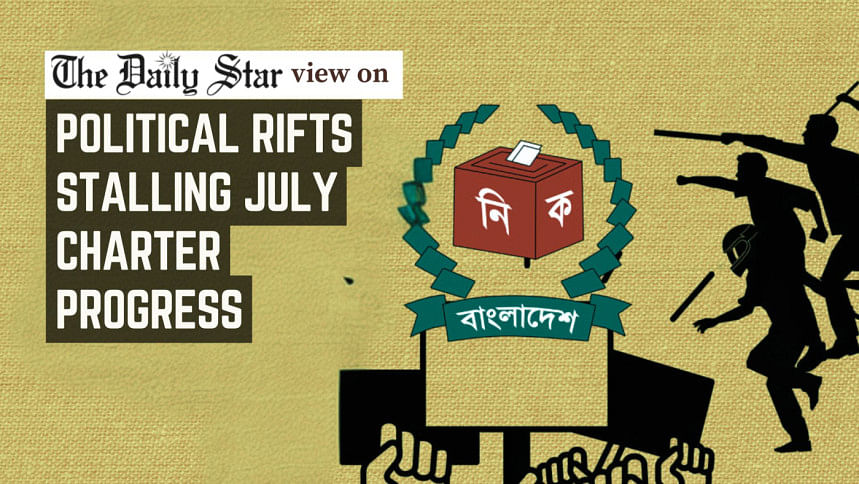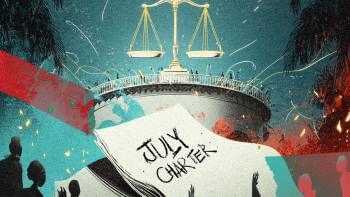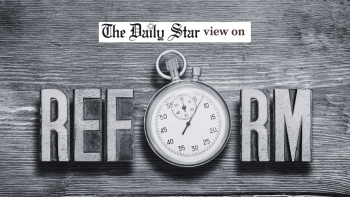Reaching consensus shouldn’t be this slow

We are concerned that political parties are still stuck in disagreements over some key reform proposals and the finalisation of the July Charter. The National Consensus Commission (NCC) has been holding talks with them for months now. With the deadline to finalise the charter ending on July 31, a report by this daily indicates that there are still sharp disagreements on several issues among the parties.
The BNP, for instance, has partially agreed to the proposed reforms in the draft charter, while Jamaat-e-Islami, Islami Andolon Bangladesh (IAB), and the National Citizen Party (NCP) hold some reservations. Jamaat has termed the draft "incomplete and dangerous," while the IAB says it is "weak, lenient towards the fallen autocracy, and lacking enforceability." The BNP says it has issues with the phrasing of some sections and wants them revised, but it has no fundamental objection to the draft. Ganosamhati Andolon shares the BNP's sentiment regarding some of the wording and language, adding that additional points should be included. The NCP wants all the consensus points to be codified into law before the next parliamentary election. The NCP, Jamaat, and the IAB have all demanded that the charter be made legally binding.
The consensus dialogues—held in two phases, the first from March 20 to May 19 and the second starting from June 2—did see some success. Through these talks, the country's political leadership reached consensus on 12 key issues, including the two-term (10 years in total) cap on an individual's service as prime minister and the formation of an independent police commission. However, on issues like the selection of chief advisers and women's representation in parliament, political parties remain divided.
We appreciate the complexity of the entire consensus-building process (with so many parties involved), as well as the prudence shown by political parties so far by making concessions to reach agreement on certain crucial reforms. That said, we expected this whole exercise to have taken less time and shown more willingness for compromise. The back and forth over these issues has been going on for months. Consensus-building, especially when everyone claims to want a nation free of discrimination and inequalities in the spirit of the July uprising, should not be this arduous.
To have such differences even after so long is quite disappointing. With the tentative deadline for the upcoming elections set in February 2026, what we need is stability and clear direction so that we can move on to the business end of this whole exercise. Therefore, we urge all political parties to see the bigger picture and act accordingly. Prolonging the consensus-building process risks not only creating further divisions and uncertainties in society but also jeopardising the future of reform initiatives. Parties, therefore, must cooperate with the NCC to reach a common ground on the unresolved issues and finalise the July Charter. They must do this to honour the sacrifices of our July martyrs and warriors and realise their dream of a new Bangladesh.

 For all latest news, follow The Daily Star's Google News channel.
For all latest news, follow The Daily Star's Google News channel. 










Comments